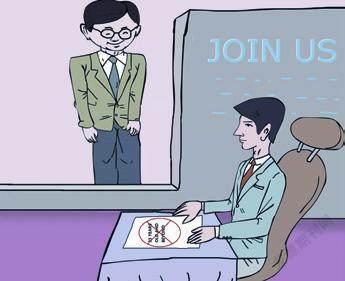Time to Cancel‘35’Recruitment?
Cancelling the age threshold of 35 for civil service recruitment has once again become a trending topic in Chinese society. Nowadays, those in their mid-30s are called “senior citizens” in certain fields such as the IT industry, and many are repeatedly dismissed once they reach this“ceiling.” Even company managers and unit heads have little hope of being promoted once they hit 35.
In China, people aged 15 to 34 fall into the “youth” category. All sectors, unquestionably so, need young people to create new possibilities for innovation and sustainability. The government’s lineup of civil servants, too, needs the regular injection of fresh blood. Yet, the argument holds up that as the Chinese life expectancy continues to rise, the 35-year-old threshold has already become a thing of the past; it’s high time for a change.
Editorial (www.gmw.cn): In 2020, the Chinese population aged between 16 and 59 stood at 880 million, a decline of 40 million over the 2010 number. In the meantime, the average age of the Chinese population was 38.8 in 2020, which means the age of 35 already falls below the average level. In 2011, the labor force’s average years of schooling stood at 7.5, while in 2020, this was 10.8. If the threshold remains at 35, less and less time will be left for college graduates to prepare for the civil service recruitment exams, squeezing the talent base that the civil service can turn to.
In the new era, the threshold of 35 must be reviewed in accordance with the changing times. One thing is certain: It’s time for this regulation to be updated.
Hu Haijun (cbgc.scol.com.cn): As it takes much longer than before to nurture and train qualified personnel, many will land their first job when they approach 30. If the threshold is set at 35, this means a large proportion of young employees will be left out.

This list of age discrimination in many sectors goes on and on. It not only hinders employment, but also dampens staff enthusiasm and job satisfaction, as they’re faced with the prospect of soon being driven away—no matter how well they may perform. This further constitutes a waste of human resources and talent.
In 2021, China’s average life expectancy reached 77.3. Meanwhile, the nation’s policy of delaying retirement will soon come into effect. In this context, the threshold of 35 is totally out of sync with the times.
Even the World Health Organization’s definition of youth keeps changing. Usually, those below the age of 44 are categorized as young, but this threshold is expected to go up(again). We should never underestimate the impact of this definition on people’s mindsets and social development by large.
Ding Xinke (www.dahe.cn): Generally speaking, civil service recruitment demands applicants to be 35 or under, but this is not set in stone. Throughout the drafting process, the age rule is sometimes relaxed—and overall doesn’t apply as rigidly to fresh postgraduates.
To join the civil servants, sitting the nation-wide exam is not the only channel. People can also become a civil servant through public selection, or by being transferred to a civil servant post, etc.
An age threshold is reasonable and scientific to a large extent. If the age limit is wholly abandoned, it can be expected that more people will apply, thus resulting in a huge cost and burden on the employers. In reality, skillful veterans are precious human resources to businesses and organizations. Their employers usually try to limit their brain drain and will not impose unbending thresholds on recruitment.
To eradicate age discrimination is not equal to removing the age limit. It’s important to make it easier for those relatively older but more experienced staff to get reemployed in suitable posts after leaving their old employers. BR

